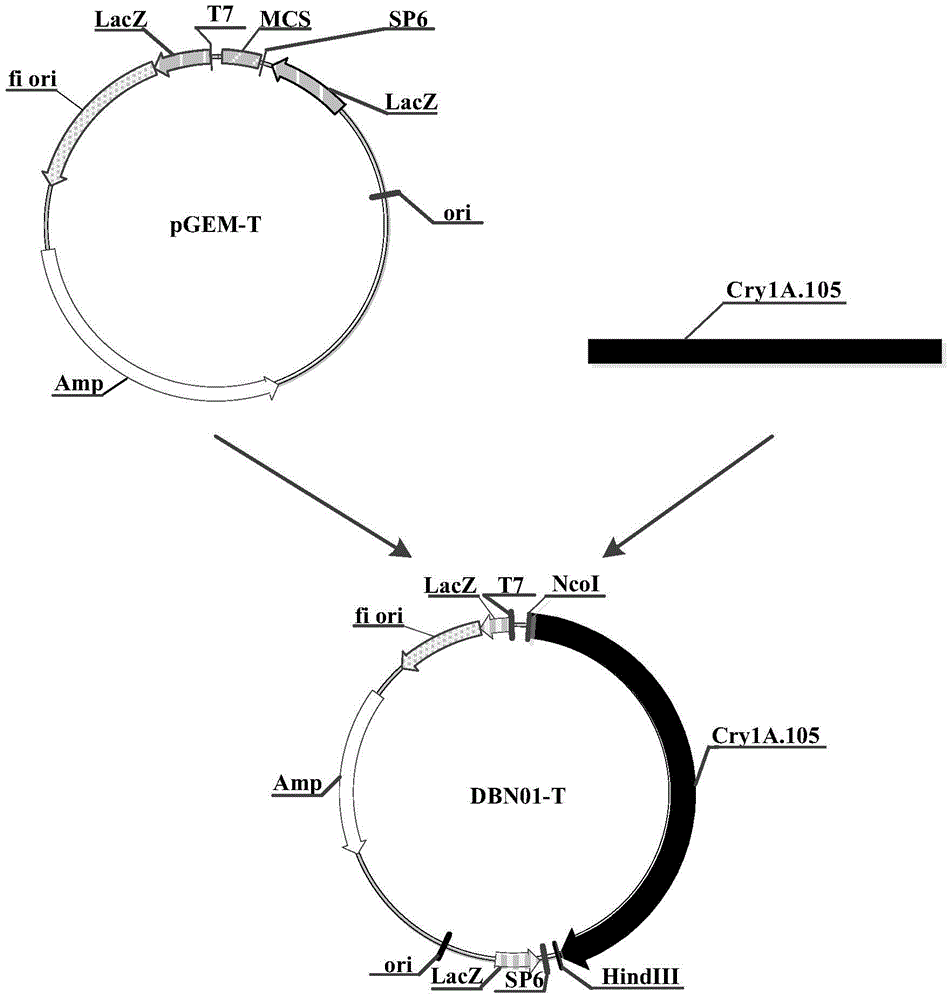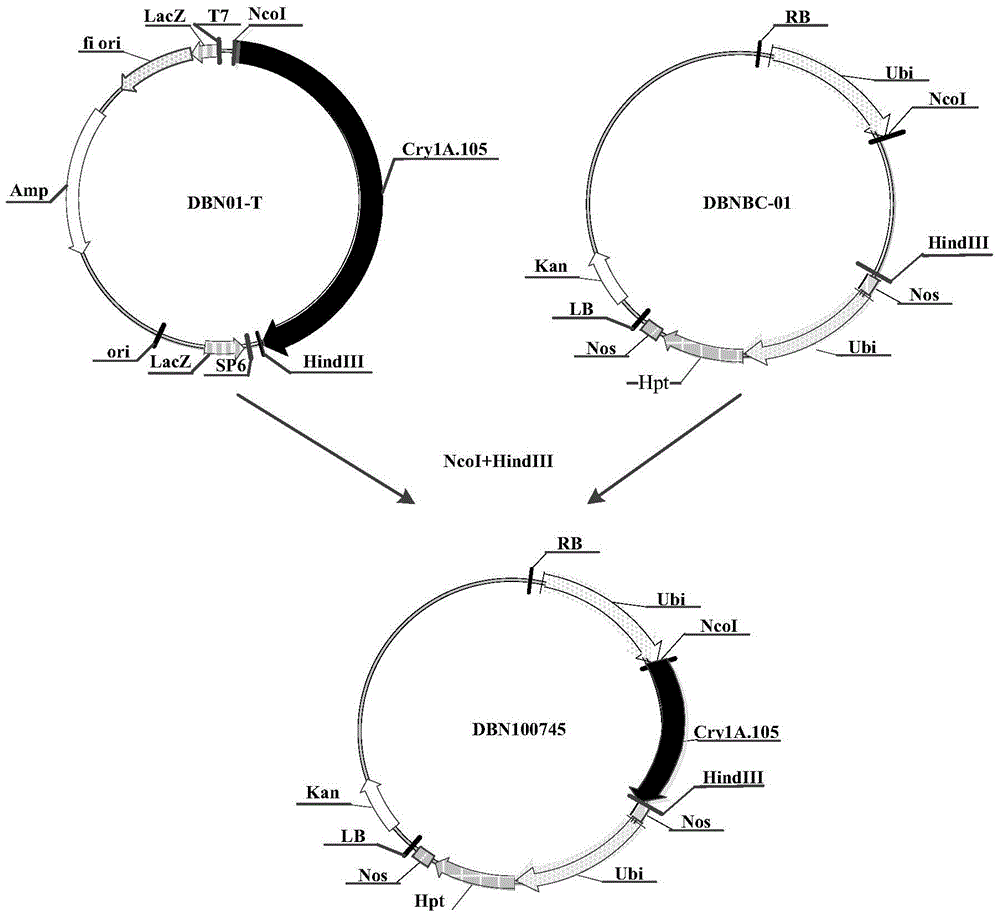The use of insecticidal protein
A technology of insecticidal protein and protein, applied in the field of insecticidal protein
- Summary
- Abstract
- Description
- Claims
- Application Information
AI Technical Summary
Problems solved by technology
Method used
Image
Examples
no. 1 example
[0086] The first embodiment, the acquisition and synthesis of genes
[0087] 1. Obtain the nucleotide sequence
[0088] The amino acid sequence (1177 amino acids) of the Cry1A.105 insecticidal protein, as shown in SEQ ID NO: 1 in the sequence listing; the Cry1A.105 nucleus corresponding to the amino acid sequence (1177 amino acids) of the Cry1A.105 insecticidal protein encoded Nucleotide sequence (3534 nucleotides), as shown in SEQ ID NO:2 in the sequence listing.
[0089] The amino acid sequence (634 amino acids) of encoding Cry2Ab insecticidal protein, as shown in SEQID No:3 in the sequence table; The Cry2Ab nucleotide sequence (1905) of encoding corresponding to the amino acid sequence (634 amino acids) of described Cry2Ab insecticidal protein nucleotides), as shown in SEQ ID NO:4 in the sequence listing.
[0090] 2. Synthesize the above nucleotide sequence
[0091] The Cry1A.105 nucleotide sequence (as shown in SEQ ID NO: 2 in the sequence listing) and the Cry2Ab nucleo...
no. 2 example
[0092] The second embodiment, construction of recombinant expression vector and transformation of recombinant expression vector into Agrobacterium
[0093] 1. Construction of a recombinant cloning vector containing the Cry1A.105 gene
[0094] The synthesized Cry1A.105 nucleotide sequence was connected to the cloning vector pGEM-T (Promega, Madison, USA, CAT: A3600), and the operation steps were carried out according to the instructions of the pGEM-T vector produced by Promega Company to obtain the recombinant cloning vector DBN01-T , its construction process is as follows figure 1 Shown (wherein, Amp represents the ampicillin resistance gene; f1 represents the replication origin of phage f1; LacZ is the LacZ start codon; SP6 is the promoter of SP6 RNA polymerase; T7 is the promoter of T7 RNA polymerase; Cry1A.105 is the promoter of Cry1A .105 nucleotide sequence (SEQ ID NO: 2); MCS is the multiple cloning site).
[0095]Then, the recombinant cloning vector DBN01-T was transf...
no. 3 example
[0105] The third embodiment, the acquisition of transgenic plants
[0106] 1. Obtaining transgenic corn plants
[0107] According to the commonly used Agrobacterium infection method, the immature embryos of the aseptically cultured corn variety Zong 31 (Z31) were co-cultured with the Agrobacterium described in 3 in the second embodiment, so that the The T-DNA in recombinant expression vectors DBN100745, DBN100744 and DBN100029 (including the promoter sequence of maize Ubiquitin gene, Cry1A.105 nucleotide sequence, Cry2Ab nucleotide sequence, Hpt gene and Nos terminator sequence) were transferred to maize chromosome In the group, the corn plants transferred to Cry1A.105 nucleotide sequence, the corn plant transferred to Cry2Ab nucleotide sequence and the corn plant transferred to Cry1A.105-Cry2Ab nucleotide sequence were obtained; as comparison.
[0108] For Agrobacterium-mediated transformation of maize, briefly, immature immature embryos were isolated from maize and contact...
PUM
 Login to View More
Login to View More Abstract
Description
Claims
Application Information
 Login to View More
Login to View More - R&D
- Intellectual Property
- Life Sciences
- Materials
- Tech Scout
- Unparalleled Data Quality
- Higher Quality Content
- 60% Fewer Hallucinations
Browse by: Latest US Patents, China's latest patents, Technical Efficacy Thesaurus, Application Domain, Technology Topic, Popular Technical Reports.
© 2025 PatSnap. All rights reserved.Legal|Privacy policy|Modern Slavery Act Transparency Statement|Sitemap|About US| Contact US: help@patsnap.com



